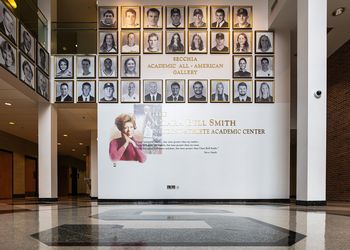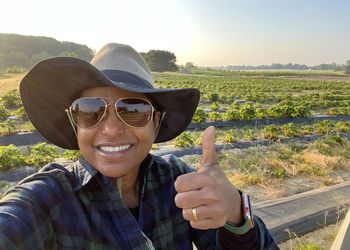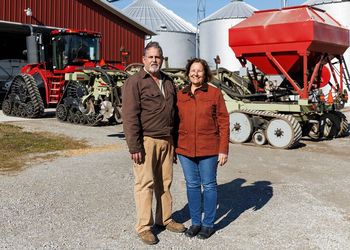Feature: Meet MSU Associate Vice President for Alumni Relations

The new executive director of the MSUAA brings energy, vision and Spartan pride to his job, as can be discerned from his replies to the questions recently posed to him by the MSU Alumni Magazine.
Q: What attracted you to the job of leading the MSU Alumni Association?
A: Although I am Ann Arbor born, I've really been a Spartan all of my life. My best friends are those I met at MSU. There has been a Spartan connection at every important turning point. And I owe my modest career success in large part to MSU's influence. The opportunity to become the "chief evangelist" for this institution is the best career opportunity I've ever had and the most exciting way I can give back to the place that has given me so much for so many years.
Q: What is the biggest challenge we face as an alumni association today?
A: Being relevant to our members. While amenities like credit cards and travel remain popular with many of our alums, the MSUAA must become what I call "your personal network for life." When you graduate, we will help you find a job. When you move to a new town, we'll connect you with your community. Moreover, we’llkeep you informed and engaged with the Spartan Nation through a quarterly magazine, a monthly e-newsletter, Spartan podcasts, videocasts, Tweets, Facebook, and other communication channels in social media. When you need to expand your skills, update your resume or reinvent yourself, we have nearly a half million Spartans around the world who are willing to help and a dedicated team in East Lansing to connect you with them.
Q: Currently the percentage of alumni who are members of the MSUAA is relatively low in the Big Ten. Will the effort to make the association more relevant have the effect of increasing membership? If so, have you set some benchmarks on membership growth?
A: I love thinking big. It’s not unreasonable to expect that we’ll double our membership over the next few years. It will be hard work and will depend on how well we conceive and execute the vision. But I believe that once the faithful understand the value proposition, everybody will want to connect with the Spartan Nation.
Q: How important are local MSU alumni groups to this new approach?
A: They invented it. In my corporate career, I've lived in more than a half dozen different places across the country. In every instance I've found a Spartan who helped (my wife) Colleen and me get acclimated. "Let us know how we can help" was a common sentiment. We need to continue to leverage our local talent to expand the MSUAA's reach across the country and around the world.
Q: You’ve actually served as president of three alumni regional clubs. Will you tell us about those experiences?
A: Being involved with our local clubs was a real highlight of my MSU experience. That’s where the MSU magic continues to flow every day. Each time we came to a new community, I would invariably find a Spartan who would tell us where the local group met. Those people became our closest friends and helped us settle in. The local clubs were the foundation of my professional network too, introducing me to folks who helped move my business forward.
Q: You’ve served as president of the national alumni board, on many committees, and on the board of the College of Communication Arts & Sciences. You are also a member of MSU’s Snyder Donor Society. I don’t suppose you bleed green?
A: I’ve always had a heart for MSU. Getting in the habit of philanthropy was something I did early on. In the early years of my career, my contributions were more time and talent as opposed to treasure. I learned a ton about how the university works and made some wonderful lifelong friendships in the institution that were catalysts for my passion.
Q: I can see how you are able to lead by example. But with the current economy in Michigan, and with state funding for education declining, can you pull off your grand vision of dramatically increasing alumni engagement?
A: One of the best things to happen to our team over the last year was our partnering with University Development under the University Advancement umbrella. We all have the common goal of ensuring that MSU's legacy of excellence, improvement and innovation continues and it's up to men and women of vision to help make it so. Whether it's time, talent or treasure, we can all be philanthropists, reinvesting in our beloved institution and all it stands for.
Q: Do you think the so-called "me" generation will buy into this concept?
A: I think so. But it's up to us to continue to develop new programs and services that appeal to our membership. A classic example is the work we're doing to help people reinvent themselves in these tough economic times. By the way, an excellent feature of this alumni service ran in the Winter 2010 issue of the MSU Alumni Magazine. MSU Alumni Career Services has been at the forefront with resources, webinars and face-to-face engagement that's re-energizing Spartan careers across the country.
Q: How has the MSUAA been leveraging "new media" to engage with the Spartan Nation?
A: MSU is working hard in developing social and professional media strategies. Our college of engineering has a half dozen very active Twitter accounts. MSU is all over Linked-In and Facebook, targeting unique interests and promoting our many student organizations. We're a world leader in long distance education. And increasingly, corporations and the traditional media are recognizing the MSUAA's social media efforts as among the best.
Q: You graduated in 1978. What's it like to be back on campus and how have things changed?
A: I'm loving being back at MSU. I bought a meal plan and eat almost every day at one of our award-winning residence halls. The food is better and my personal trainer wife approves of my diet, even if I still finish up with some MSU dairy store ice cream. It's been fascinating to watch how technology is supercharging the learning environment. I was at Owen Hall the other day and a group of international students were watching a soccer game on the big screen, streamed over the Internet. And yet, the students seem just as engaged and inquisitive as they were back when I first walked into wonders hall 36 years ago.
Q: That seems like a long time ago. Nonetheless, you have acquired a reputation of still being on the cutting edge.
A: The old saying that your kids keep you young certainly applies here. This week, alone, I've had dinner with the MSU Turkish Students Association, brainstormed with a dean about a student-driven renewable energy program, and traded geek speak with a doctoral candidate about iPhone applications for the association. It's hard not to stretch your mind and get fired up in an atmosphere like this.
Q: You’ve had a very successful career in cable television—in fact, you’re in a cable Hall of Fame. Can you share any successes or lessons from that career that are applicable to your current job?
A: I discovered early on that exceptional customer care is the only competitive advantage. It’s all about building profitable relationships, one at a time. I learned from the best in the business at Continental Cablevision and had an incredible boss/mentor at Comcast. Our metrics began with customer satisfaction and a large percentage of our compensation was tied to it. We sweated the small stuff every day. It turns out that the little things—taking an extra moment with a team member, returning a customer call after hours or during the weekend, and appreciation for folks who go the extra mile—makes all the difference.
Q: Beyond the cable industry, you’ve enjoyed other private sector successes (satellite radio and aviation, for example). Will you tell us about these experiences?
A: I had a lot of dreams as a kid and decided one day to make a list of all of them and make them real. I learned about geography, politics and culture from listening to short wave and wanted to create my own worldwide radio network. The World Beacon, which broadcasts to Africa and Asia via shortwave, was the result. I saw the US Air Force Thunderbirds perform in Holland one summer many years ago and said to myself, “I’m gonna fly fast airplanes one day.” I learned to fly when we lived in rural Illinois and started an aviation leasing firm to making flying quality aircraft affordable, not just for me, but for everyone. But my biggest charge came during the dot com revolution when a hurricane forced us to evacuate our family from our Florida home. Once we were west of Jacksonville, there was no up-to-date information about what had happened and when we could go back. So I decided to build a network to disseminate it. The Emergency Email Network has done that very thing ever since, connecting local emergency coordinators and national agencies like homeland security and the Red Cross directly with people who need the information.
Q: You often refer to yourself as the “Humble Servant” or the “Head Servant” of MSU alumni. Is that an allusion to Thomas Jefferson, who considered himself the nation’s “humble servant” and who signed his letters in that manner? Or is it just a reflection of your attitude toward this new challenge?
A: Two of my favorite historical figures are Thomas Jefferson and Robert Greenleaf. Jefferson said, “I hope our wisdom will grow with our power, and teach us that the less we use our power the greater it will be." That really resonates with me. Bob Greenleaf was an AT&T thinker who first wrote extensively about the concept of the servant leader. I think the best leaders are those who think of themselves not as exercisers of power, but as servants who use their wisdom and influence to help their teams become empowered to be their best. To be a humble servant for MSU is the greatest calling I can imagine.
Q: In your stump speech to alumni, I noticed that you often emphasize “State” when you refer to Michigan State University. What is the message behind that?
A: I believe that we truly are the University of Michigan that inspires, educates and engages the people of our great state to be the best we can be. I have a great love and respect for our sister institution down the road, but in fact, we have a larger in-state student population than any other university in this state. Our career services and social and professional media experts have helped more Michigan people polish resumes, learn new skills, and find new jobs than any alumni association in this state. The MSU Extension service has helped more families in Michigan over the last 100 years than any other university in this state. And we have more members of the MSUAA who didn't attend MSU but believe that MSU adds more value to their lives, their community and their world than any other university in Michigan. I came back to MSU because I believe that the State of Michigan can again be the “Arsenal of Democracy.” But in this new world we are an arsenal of ideas, of inclusiveness, of Boldness by Design, that can rise above any adversity and become an unstoppable force that will rejuvenate, redefine and renew the American dream.
Q: Wow, would it be fair to say that the MSUAA is much more than just a job for you?
A: It's definitely a lifestyle and one I am totally loving. I'm blessed with a dedicated team, a terrific boss and a visionary president who all share my belief that our state, our nation and our world will be a better place because of Spartan minds, hands and hearts. If you look at our history, you’ll see that MSU has been a part and parcel of the success of this country and the progress of humankind. We gave the world hybrid corn, homogenized milk, and the world’s leading anti-cancer drug—which, in fact, is right now saving Colleen’s life. We are pioneers and we are problem solvers, whether you’re talking about feeding the world, curing diseases or discovering rare isotopes. I'm certain that the next chapter in the American Dream will be written by Michigan State University and its alumni worldwide.



